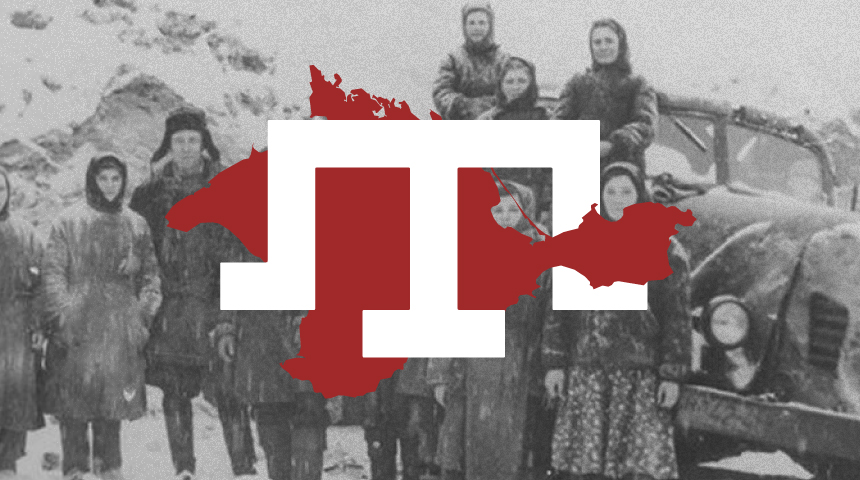On 18 May, we commemorate the victims of the Crimean Tatar genocide
Every year on 18 May, we commemorate the victims of the genocide of the Crimean Tatar people. In just three days – from 18 to 20 May 1944 – the Soviet authorities forcibly evicted nearly 190,000 Crimean Tatars from their homeland, deporting them to remote regions of the USSR. As part of the subsequent ethnic cleansing, a total of 238,500 people were relocated from Crimea. In the first years after the deportation, 46.2% of all those deported died, which is almost every second person.
Crimean Tatars were given from a few minutes to half an hour to get ready and then transported by trucks to railway stations. From there, they were transported in echelons, in tightly locked freight cars, to places of exile in Uzbekistan and the adjacent regions of Kazakhstan and Tajikistan. Small groups of people were sent to the Mari Autonomous Soviet Socialist Republic, the Urals and the Kostroma region of Russia. On the way, people were fed rarely and poorly, and the dead were buried near the railway tracks or not buried at all.
Among the reasons for the deportation, the USSR authorities mentioned the desertion of Crimean Tatars from the Red Army, collaboration with the Nazis and the massacre of Soviet partisans. These were far-fetched and groundless accusations. Stalin just wanted to rid Crimea of its indigenous population and populate this paradise with a more understandable and submissive population.
For over 20 years, the communist regime had denied the criminal nature of its actions. In 1967, the Supreme Soviet of the USSR recognised the groundlessness of the total accusation against the Crimean Tatars. However, in contrast to other ‘punished peoples’, they were not allowed to return to Crimea. Only in 1989 did the Soviet Parliament recognise the deportation as illegal and criminal.
The deportation of Crimean Tatars in 1944 was recognised as an act of genocide: Ukraine – in 2015, Lithuania and Latvia – in 2019, Canada – in 2022, Poland, Estonia, and the Czech Republic – in 2024.
Today, we honour the victims and support those who have preserved their identity against all odds. We remember… We tell the truth… We do not forget…
